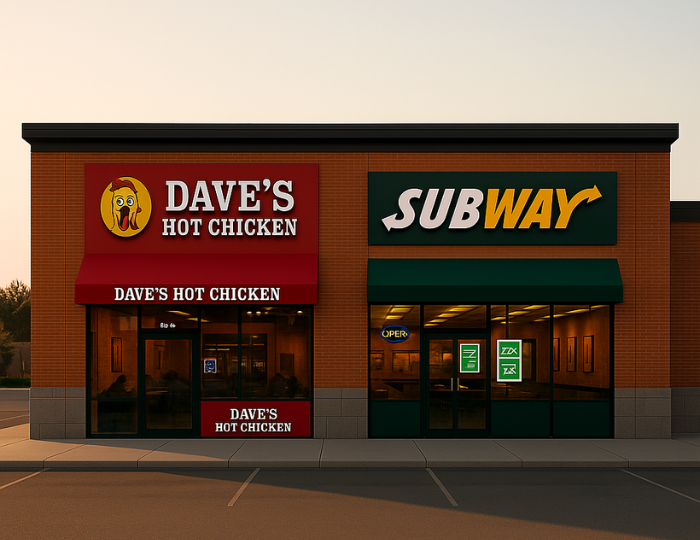
In a move that underscores the growing intersection of private equity and fast-casual dining, Roark Capital recently acquired a controlling interest in Dave’s Hot Chicken, valuing the Nashville-style chicken chain at over $1 billion. This acquisition is not only a milestone for the brand’s investors—which include celebrities like Drake—but also a compelling case study in how legal strategy shapes high-value franchise transactions. For attorneys advising companies in the food and beverage space, particularly those involved in franchising or seeking investment, the Roark-Dave’s Hot Chicken deal offers important takeaways.
Private Equity Deal Structures in the Franchise Sector
Private equity firms often target high-growth restaurant brands as part of a roll-up or expansion strategy. In this case, Roark Capital—which owns other food giants like Dunkin’ and Arby’s—saw strategic potential in acquiring Dave’s Hot Chicken as part of its portfolio. These deals are typically structured to allow the PE firm to gain a majority interest while preserving founder equity and operational continuity.
Key features often include:
- Equity buyouts with staged payouts or earnouts for founders
- Retention plans for key management
- Minority interest protection provisions (e.g., drag-along/tag-along rights)
- Restructuring of franchisee relationships post-close
Legal Complexities in Acquiring a Franchise Business
Due diligence is more complex when franchising is involved. Legal counsel must review:
- Franchise disclosure documents (FDDs) and registration compliance
- Franchise agreement consistency and enforceability across jurisdictions
- Existing franchisee litigation or disputes
- Encumbrances or exclusivity rights that could limit future expansion
Additional hurdles include:
- Reviewing supply chain agreements
- Evaluating brand-related IP portfolios (e.g., logos, recipes, slogans)
- Assessing joint venture, celebrity, or influencer partnerships for survivability post-deal
Founder and Minority Shareholder Considerations
When private equity steps in, founders may face dilution or loss of control. Legal protections must be clearly outlined in the transaction documents. Counsel should ensure:
- Board composition reflects negotiated governance
- Rights of first refusal or co-sale rights are preserved
- Intellectual property ownership remains secure and licensed properly
- Employment contracts reflect new reporting lines and incentive structures
This deal also highlights the increasing presence of celebrity investors in food brands. Their continued involvement post-acquisition may require negotiation of new brand use agreements, royalty rights, or promotional obligations.
Regulatory Oversight and Antitrust Review
Yes. While most franchise transactions do not trigger antitrust concerns, acquisitions involving large PE firms with overlapping portfolios may be reviewed under the Hart-Scott-Rodino Antitrust Improvements Act. Regulatory counsel should assess:
- Overlapping ownership in related sectors (e.g., Roark’s interest in Buffalo Wild Wings and other chicken chains)
- Market share thresholds
- Franchisee competition and territorial exclusivity issues
Legal Considerations for Post-Acquisition Franchise Expansion
Following acquisition, growth becomes the central theme. But scaling rapidly—especially internationally—requires a legal infrastructure that can adapt at speed.
Updating Franchise Agreements to Support Growth
Legacy franchise agreements may not support the operational and branding needs of a private equity-backed rollout. Legal teams should:
- Harmonize contract terms across existing and new markets
- Build in development schedules and performance benchmarks
- Implement termination and default protocols aligned with new investor expectations
Legal Risks in Global Franchise Expansion
Going international adds another layer of complexity. Brands like Dave’s Hot Chicken must navigate:
- Local franchise registration laws (e.g., in Mexico, Brazil, the EU)
- Currency controls and cross-border tax obligations
- Local employment laws and joint employer risks
- Licensing and health compliance unique to each region
Brand Protection Strategies During Rapid Scale
Brand integrity often weakens as scale increases. To guard against brand drift:
- Register trademarks in new jurisdictions before launching
- Include strict quality control standards in franchise agreements
- Monitor social media and ad campaigns by franchisees for compliance
- Use audit clauses to enforce brand guidelines
Employment and Labor Law Compliance in New Markets
Labor law compliance becomes critical as the brand enters new states or countries. Key issues include:
- Classification of employees vs. contractors
- Wage and hour compliance across jurisdictions
- Benefits harmonization for multi-state or international workers
- Immigration and visa sponsorship for corporate trainers or executives
Frequently Asked Questions (FAQ)
Question 1: What legal documents are typically reviewed during a franchise acquisition?
Answer: Key documents include franchise disclosure documents (FDDs), franchise agreements, supplier and vendor contracts, intellectual property portfolios, and any ongoing litigation or dispute records involving franchisees.
Question 2: How can founders protect their interests during a private equity acquisition?
Answer: Founders should negotiate board rights, employment terms, equity retention, and co-sale or tag-along rights. Legal counsel can help draft these protections into the purchase agreement.
Question 3: Are antitrust concerns common in food franchise deals?
Answer: They are uncommon unless the buyer holds significant market share in a similar product category or region. However, acquisitions by large private equity firms may still be reviewed under federal antitrust laws.
Question 4: What are the main legal risks of international franchise expansion?
Answer: Risks include failing to comply with foreign franchise disclosure laws, IP theft or infringement, cross-border tax complications, and labor law violations in foreign jurisdictions.
Question 5: How can franchisors maintain brand consistency during rapid expansion?
Answer: By standardizing training, embedding brand guidelines in franchise agreements, using audit rights effectively, and maintaining centralized marketing control.
Final Takeaway
The Roark-Dave’s Hot Chicken transaction illustrates the high-stakes complexity of private equity investing in the franchise food sector. For brands navigating acquisition or expansion, legal preparation isn’t optional—it’s foundational. At Juris Law Group, P.C. we help food and beverage companies structure their growth for long-term success, whether you’re preparing for private equity, scaling a franchise, or expanding globally.
To learn more about how we guide food and beverage clients through franchise law, private equity deals, and international expansion, contact us here.


